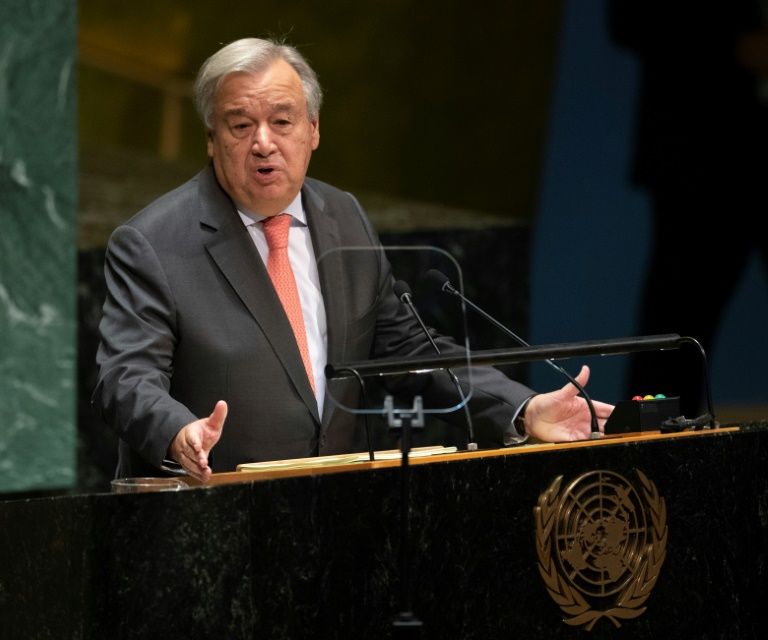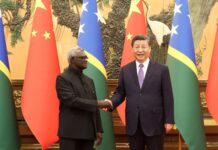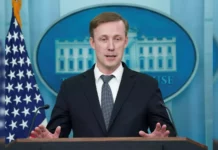UNITED NATIONS: UN Secretary-General Antonio Guterres has warned that the world organisation is facing a severe liquidity crisis, reaching its deepest deficit of the decade and will not have enough cash by next month to cover payrolls. As he sounded a dire warning on the world organisation’s financial situation, Guterres called on the 193 Member States to pay their financial dues on time.
” The Organisation is facing a severe financial crisis. To be more specific, a severe liquidity crisis. The equation is simple: without cash, the budget cannot be properly implemented, Guterres said Tuesday in remarks to the General Assembly’s Fifth Committee, which deals with administrative and budgetary issues, on the Proposed Programme Budget for 2020.
Guterres warned that in the current month, the organization will reach the deepest deficit of the decade. “We risk exhausting the closed peacekeeping cash reserves, and entering November without enough cash to cover payrolls, he said.
As I introduce the 2020 programme budget proposals, I reiterate my call on you to recommit to paying your financial obligations on time and in full, he said as he thanked those Member States that have paid their financial dues on time and those that continue to make every effort to do so, notwithstanding the difficult economic conditions they face.
“I equally urge you to consider measures to ease the structural impediments preventing us from managing the resources more effectively. The UN Chief said the full and efficient implementation of the UN’s programme of work depends on the financial support of Member States through the adoption of realistic budget levels and the provision of timely contributions to ensure a stable financial situation throughout the year.
India has been among the few countries to have fully paid its dues to the UN on time. On the other hand, the UN owed India 38 million dollars, among the highest it has to pay to any country, for peacekeeping operations as of March 2019. In April this year, Guterres had said in his report that in 2017 and 2018, 73 Member States had paid their contributions in full by the end of the first quarter, compared with 62 in 2016 and 67 in 2015. He has expressed regret that some Member States pay neither in full nor on time.
The level of arrears at the end of 2018 was $529 million, equivalent to more than 21 per cent of that year’s assessments and nearly 150 per cent of the liquidity reserves. The United States is responsible for 22 per cent of the USD 5.4 billion regular budget for 2018 and 2019 and more than 28 per cent of the USD 6.7 billion peacekeeping budget for the year to June 30. Guterres said that for the current biennium, budget implementation is no longer being driven by programme planning but by the availability of cash at hand. Among the stringent measures being put in place to deal with the financial situation, Guterres said that in 2019, managers have been instructed to adjust their hiring and non-post expenditures owing to liquidity constraints.
This undermines mandate delivery and goes against our efforts to focus less on inputs and more on results, he said.
Guterres stressed that the UN’s financial situation would have been much worse if he had not worked since January to curtail spending, align the real vacancy rate with the approved rate, and manage cash on a month-by-month basis. Without these steps, we would not have had, I repeat, we would not have had the liquidity to support the opening of the General Assembly debate and the mandated high-level meetings last month, he said.
Guterres said he has been forced to introduce extraordinary measures to cope with the record-level shortage of cash. These include vacant posts not getting filled and travel limited to essential travel only. Further, meetings may have to be cancelled or deferred, webcasting of non-mandated events will not be available, and support to meetings will have to be adjusted. The UN Secretariat will also no longer be able to support any non-mandated events after 6 p.m, a decision that affects operations in New York, Geneva, Vienna and Nairobi and at the regional commissions. Our work and our reforms are at risk, he said.
Guterres said the money could not be spent, as and when it was required, because the UN did not receive it on time. He reiterated his call to the Member States to not reduce the requirements for 2020 based on past expenditure patterns. “This would only worsen an already alarming situation. Instead, I urge you to allow us to use the unspent balances — even if they are small — to supplement our liquidity reserves. PTI







